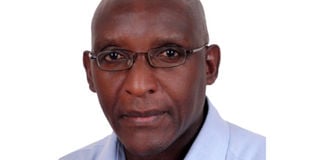ULS should lead fight against fake products

Okodan Akwap
What you need to know:
- Many of the counterfeits are increasingly becoming available online.
- It is imperative for players in the justice, law and order sector – such as judges, ULS, public prosecutors and crime investigators – to determine which counterfeit goods are generating the largest sales in Uganda to be able to target these products for a massive crackdown. Fifth, we must take action.
Simon Peter Kinobe, the new president of Uganda Law Society (ULS), has pledged that, “… we shall be building bridges as law society.” I believe him. I am familiar with Kinobe’s longstanding pattern of consistency. Between 2009 and 2012, I worked with him at Kampala International University. I was the head of Department of Mass Communication and he taught in the school of law.
Our close working relations happened when a change of university policy compelled us to cede the teaching of the Media Law course unit to the law school. As media people, we had tended to dwell on Article 29 (1) (a) of the Constitution, which states that “… a person shall have the right to freedom of speech and expression which shall include freedom of the press and other media.”
But when Kinobe took over, he opened our students’ eyes to Article 43 of the Constitution, which spells out general limitations on rights and freedoms enjoyed under Article 29. Amid protestations from students who appeared scared of the large and complex amounts of required reading materials, Kinobe soldiered on with what he had to do. The short story is that at least two of his charges became so impressed by his tutorship that they enrolled for law degrees at KIU after completing the Mass Com programme.
It is in that context that I believe Kinobe has what it takes to lead ULS in the direction of building appropriate bridges with relevant stakeholders to urgently address one of the biggest challenges of our times – the influx of counterfeit products in our economy. Counterfeit products are increasingly robbing producers of genuine products of their intellectual property rights. And this very act is hugely harmful not only to genuine manufacturers, but also to the unsuspecting consumers of fake products. Counterfeit have become so similar to the real things that the difference can be noticed from the deliberately misspelled brand names. With a solid commercial law background spanning more than a dozen years, Kinobe should reposition ULS to look beyond mere litigation and arbitration in matters relating to intellectual property rights.
He should focus on finding innovative ways of building bridges between ULS and the industrial sector by ensuring easy, timely and affordable availability of brand protection services in our economy.
It is highly likely that there are many hardworking and well-meaning manufacturers of goods in our economy, who fall victim to counterfeits simply by failing to properly register trademarks right from the initial stages of their business ventures.
Such businesspeople sorely need the guidance of ULS to ensure that their business brands are properly registered. Once this is done, the registered brands should remain free and available exclusively to the owners of the registered trademarks.
This is one way we can effectively join the rest of the world in the fight against counterfeits.
According to the Brussels-based law firm, KOAN, recent studies show that international trade in counterfeit products represents about 2.5 per cent of world trade. This translates to about $460 billion worth of a whole array of counterfeits such as the fake pharmaceuticals and cosmetics now flooding the Ugandan market with deadly consequences.
Many of the counterfeits are increasingly becoming available online. The Brussels law firm offers several valuable tips on how to curtail what it refers to as “the online counterfeiting ecosystem.”
Local manufacturers, ULS and consumers should use these tips as tools to fight counterfeiting. First, we must develop a culture of properly registering all our brands and product names as trademarks. Second, we need to develop capacity to quantify and monitor the problem to be able to correctly identify the key marketplaces for counterfeits online. Third, there is also a need for awareness-raising across the board.
Fourth, it is imperative for players in the justice, law and order sector – such as judges, ULS, public prosecutors and crime investigators – to determine which counterfeit goods are generating the largest sales in Uganda to be able to target these products for a massive crackdown. Fifth, we must take action.
For example, ULS should work closely with the customs department of URA and other law enforcement authorities to decisively put a stop to the importation or exportation of counterfeit.
As a critical segment in the justice, law and order sector, ULS should leave no stone unturned in the hot pursuit of business fraudsters by initiating and sustaining legal proceedings against counterfeits before the courts of law.
Dr Akwap is the Dean of Faculty of Social Sciences and Management Studiesat Kumi University.




